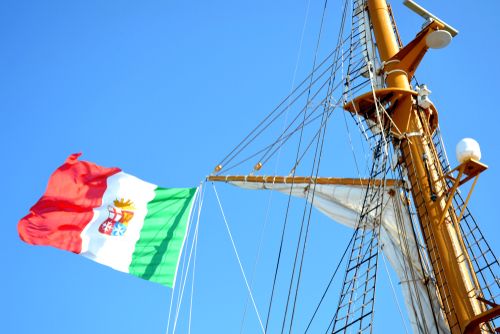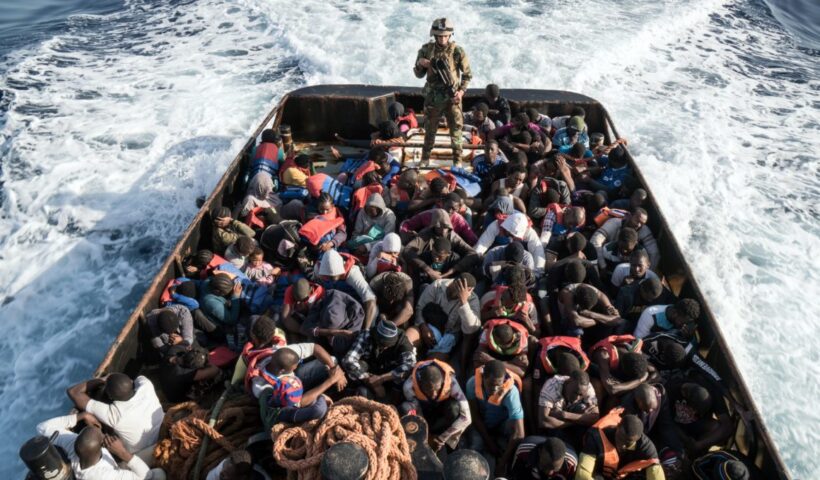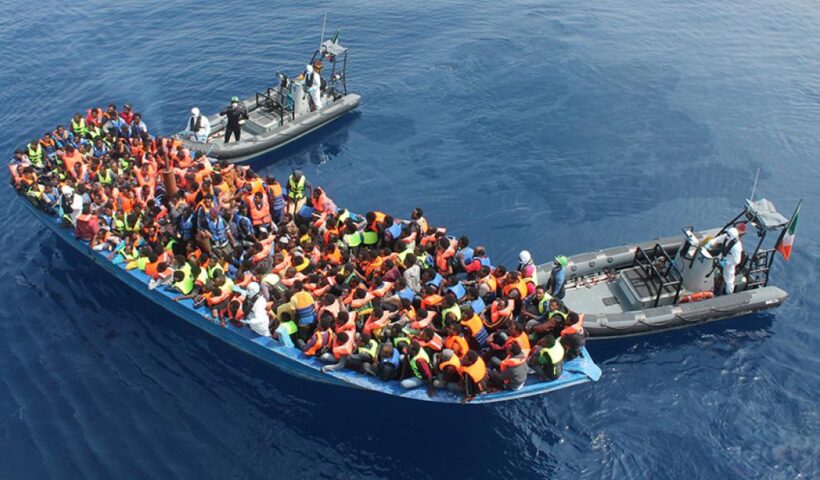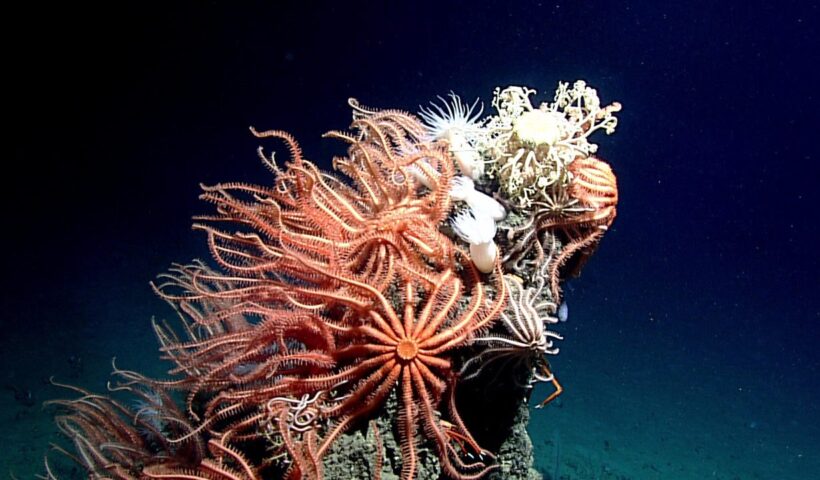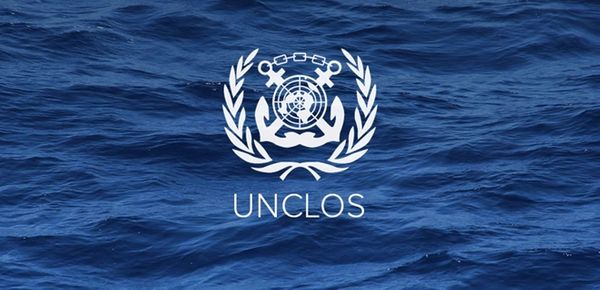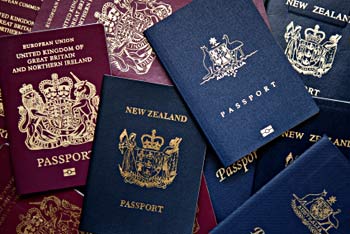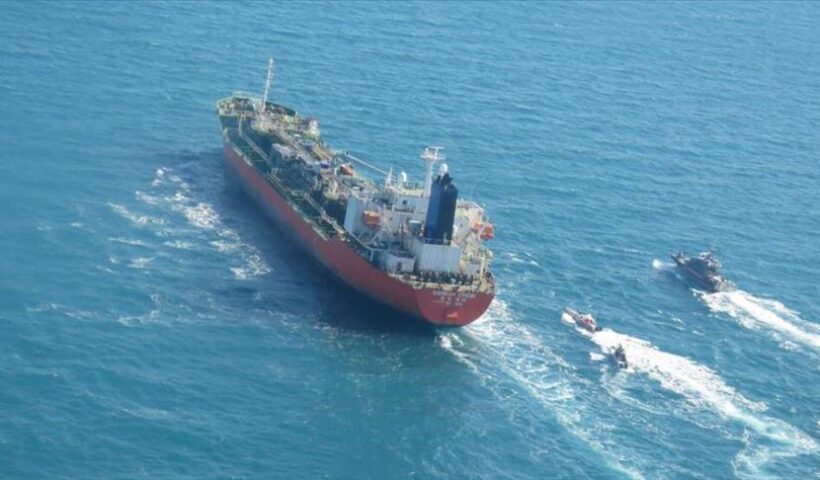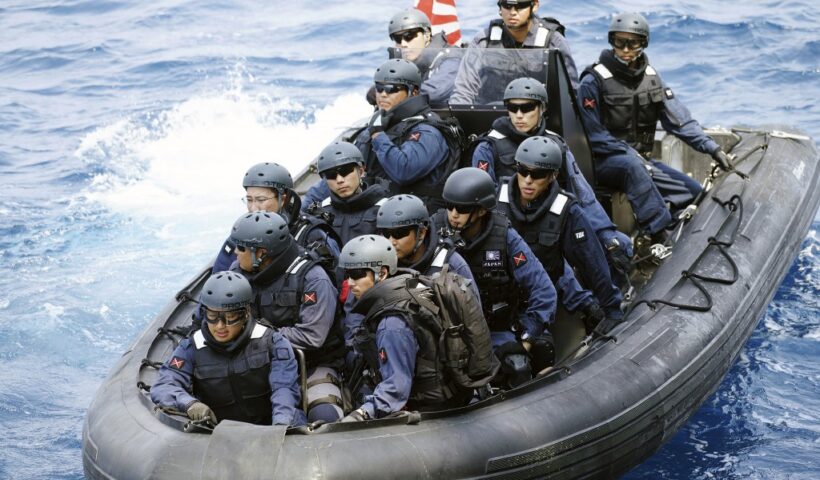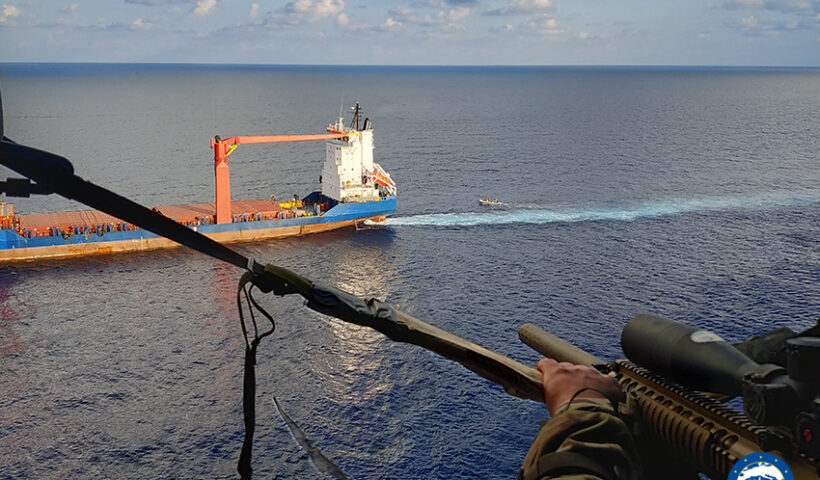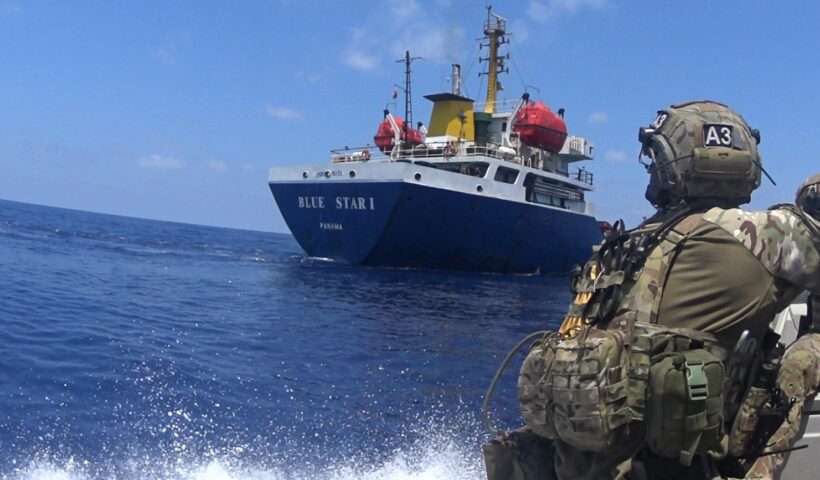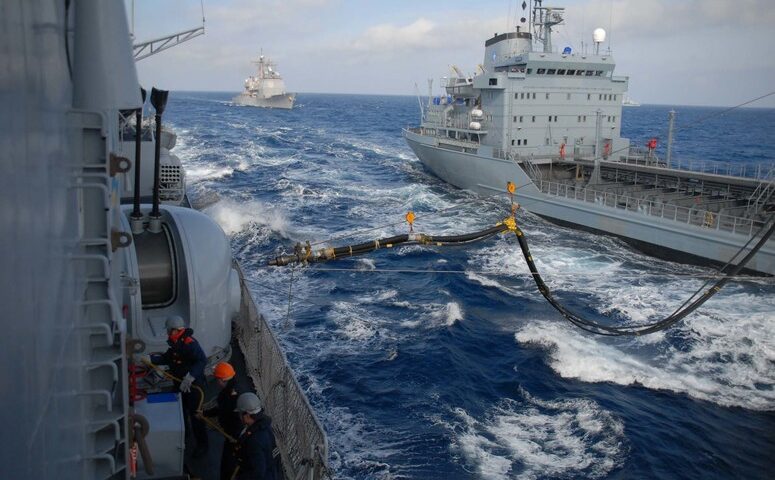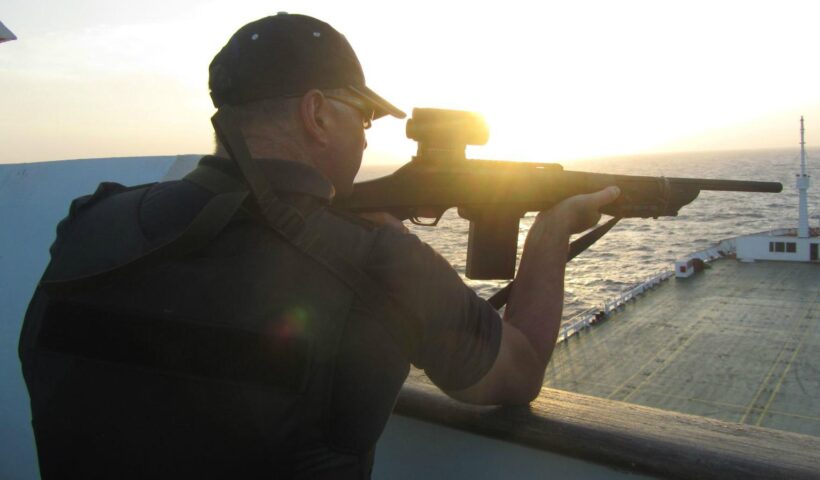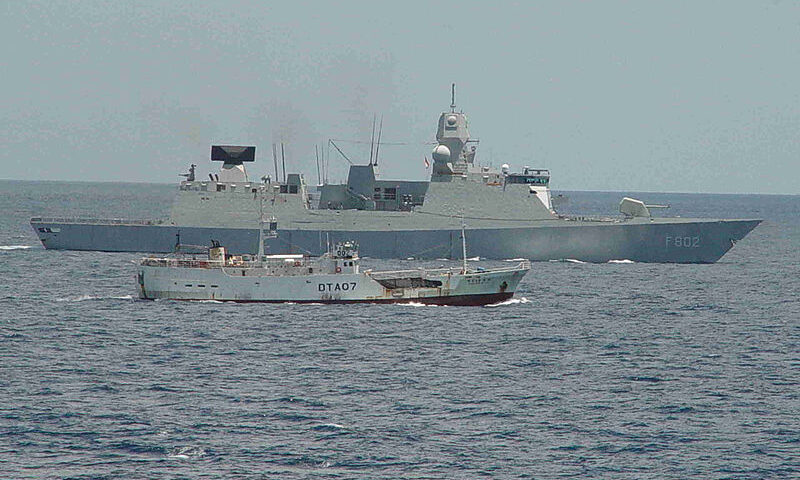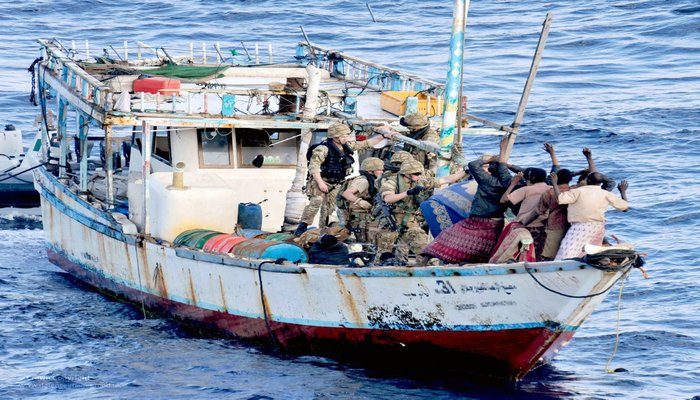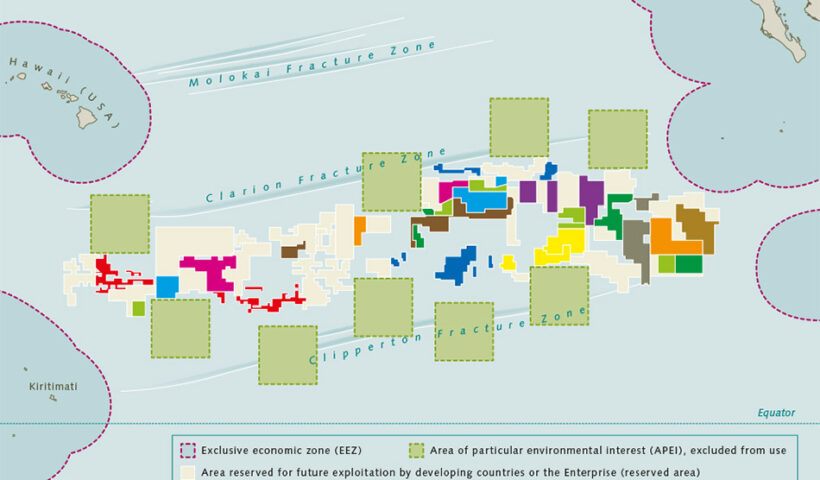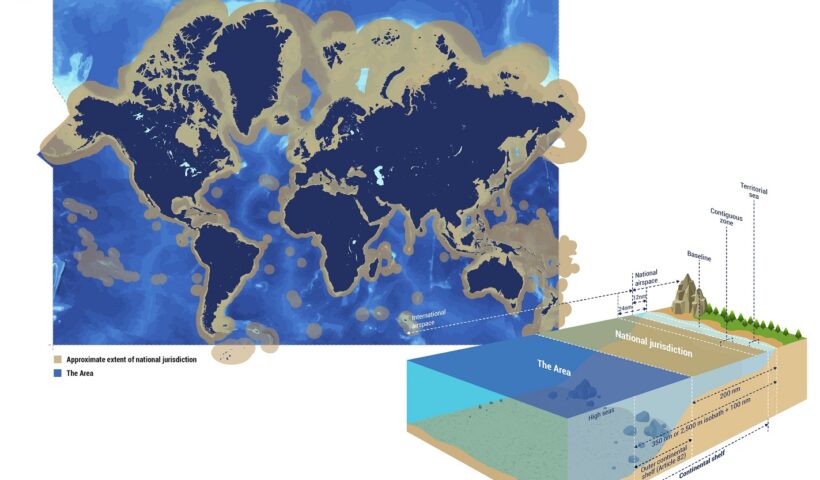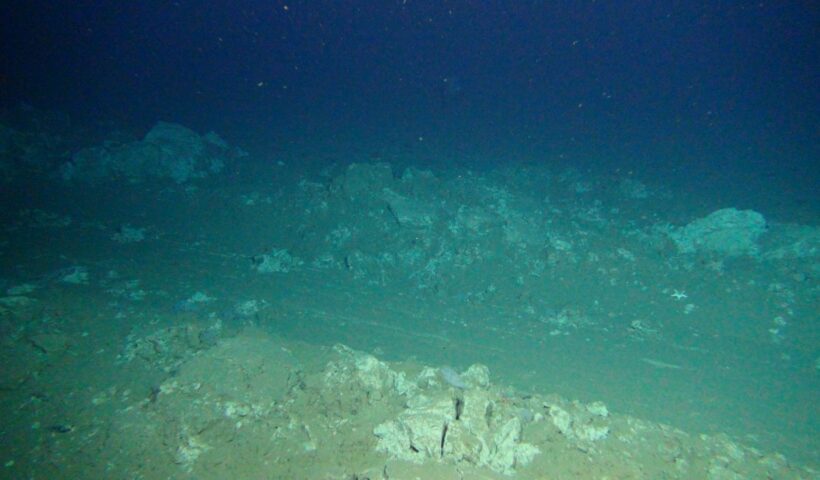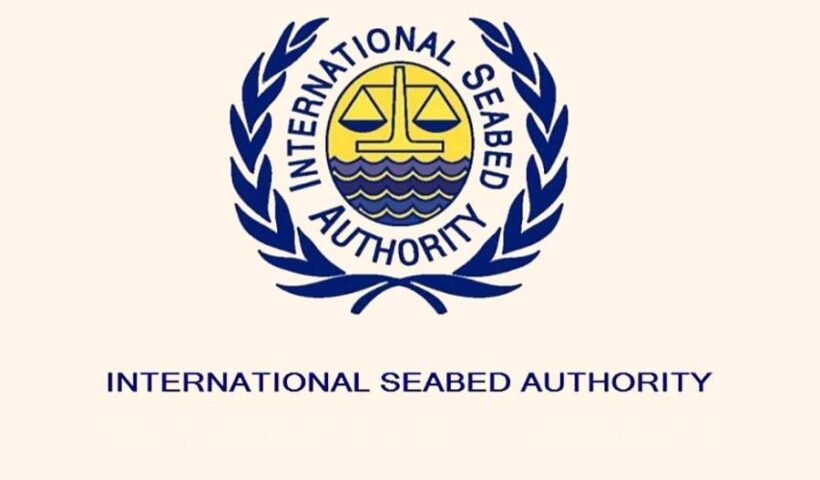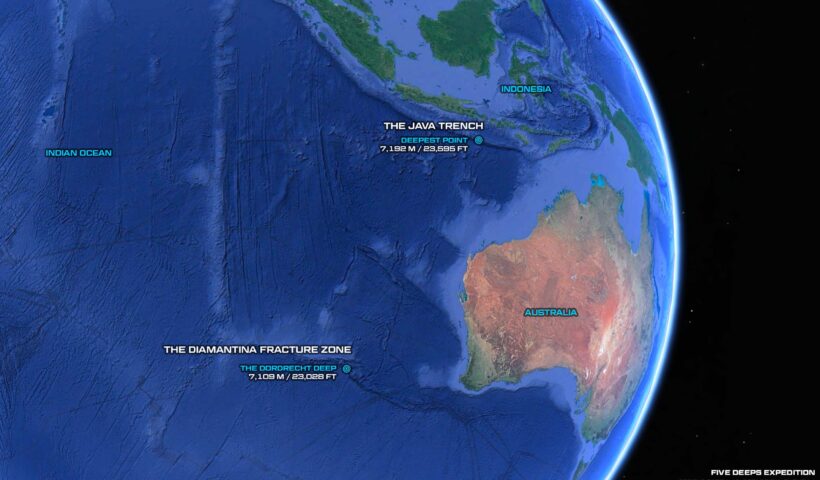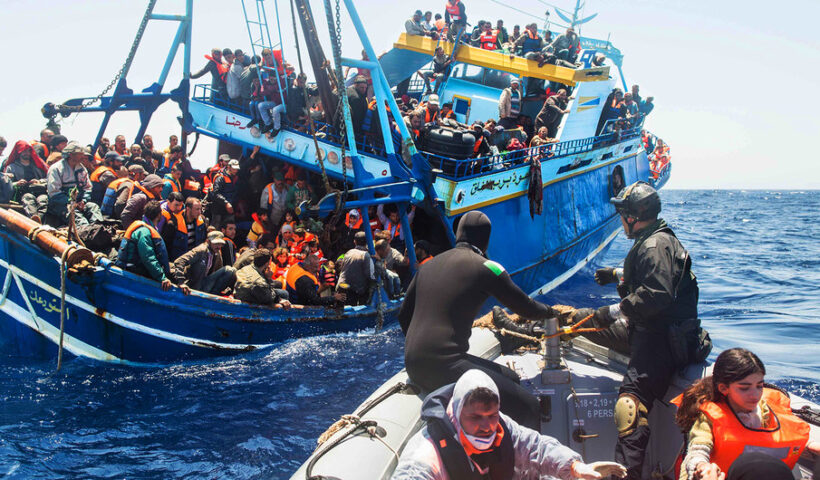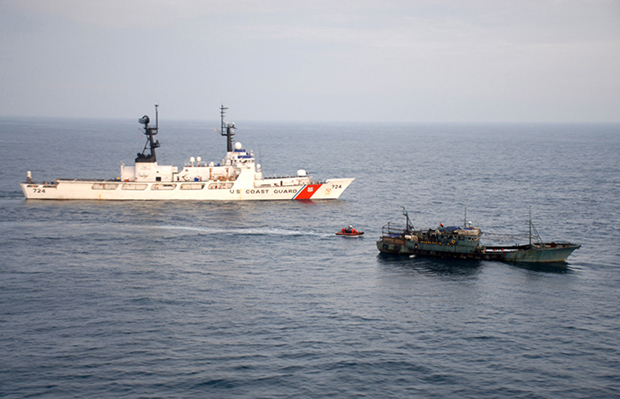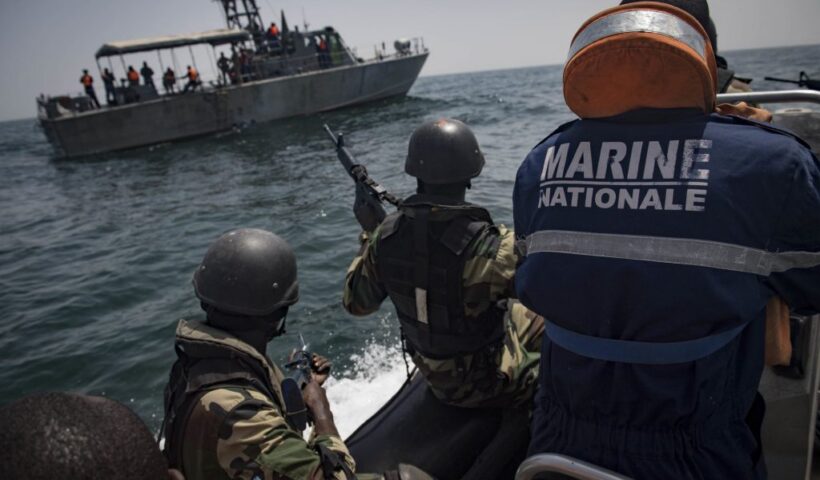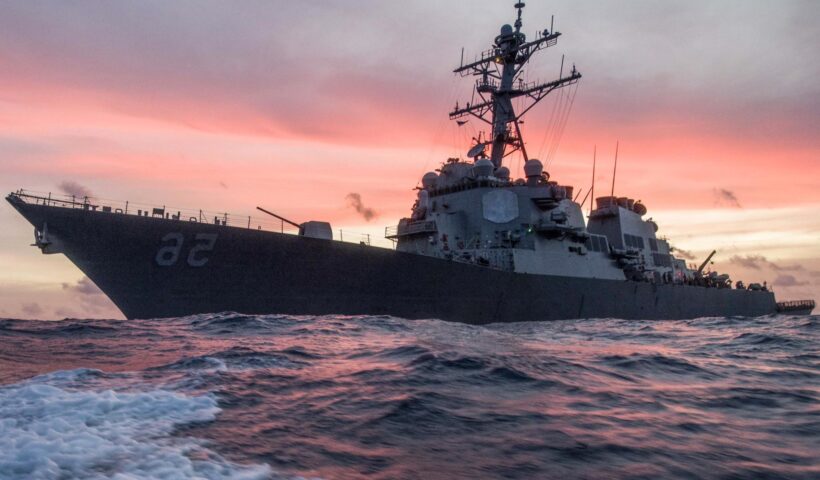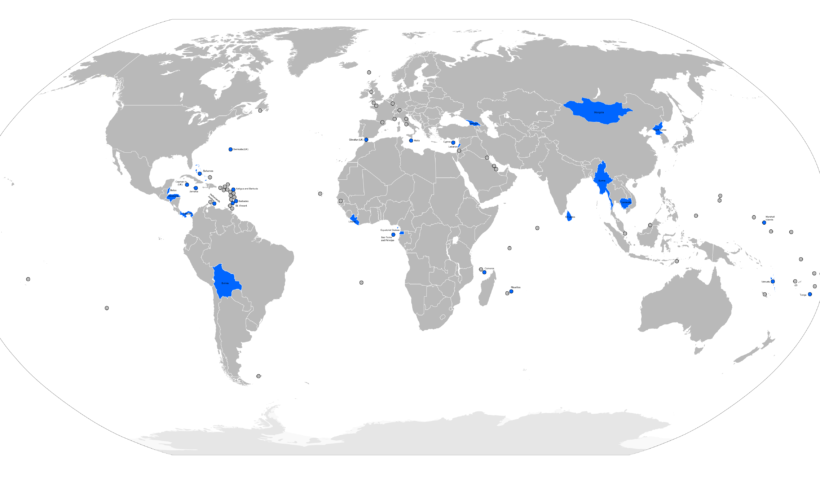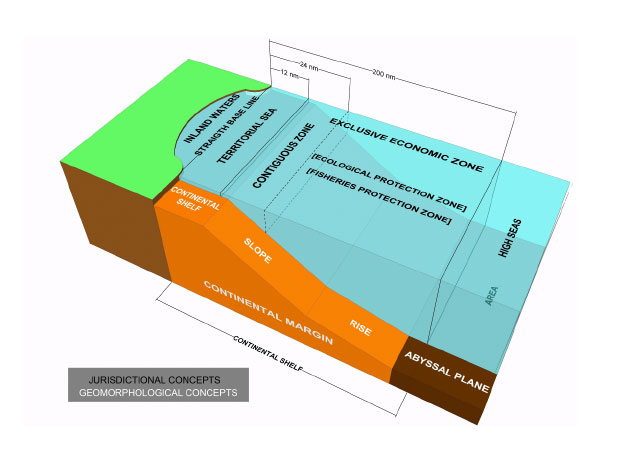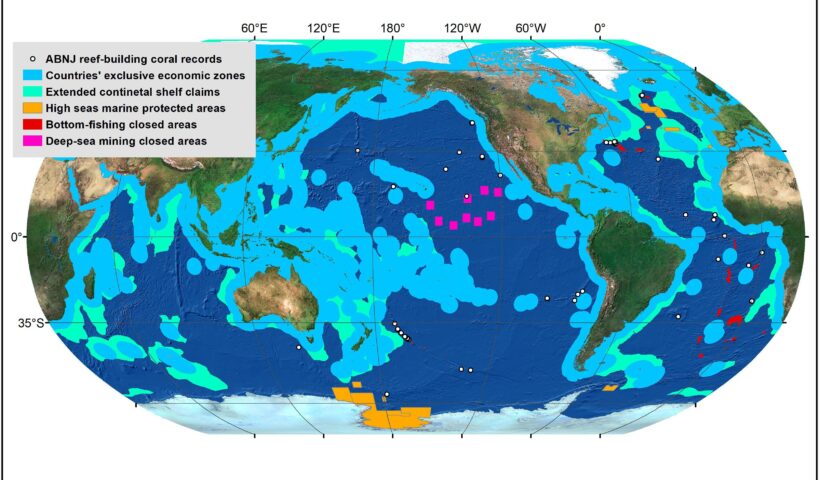Analyzing America’s Policy in the Gulf of Mexico: A Prudent Approach or Missed Opportunities?
View More Analyzing America’s Policy in the Gulf of MexicoCategory: high seas and ocean legal aspects
Unveiling America’s Diplomatic Dance: The Gulf Policy
Unmasking America’s Diplomatic Symphony: The Gulf Policy
View More Unveiling America’s Diplomatic Dance: The Gulf PolicyNATO and International Legal Regime in Open Seas: An Analytical Perspective
NATO and International Legal Regime in Open Seas: An Analytical Perspective The global order relies on the stability and security of the open seas, where international law plays a pivotal role. NATO, as a key actor in safeguarding maritime security, must navigate the complexities of this legal regime. Examining the organization’s approach from an analytical standpoint unveils insights into its effectiveness, challenges, and potential for greater cooperation. Understanding NATO’s role within the international legal framework is crucial for ensuring the preservation of maritime order and the promotion of shared interests among nations.
View More NATO and International Legal Regime in Open Seas: An Analytical PerspectiveAnalyzing the US Military Presence in the Black Sea
Analyzing the US Military Presence in the Black Sea: Enhancing Regional Security or Provoking Instability?
View More Analyzing the US Military Presence in the Black SeaAnalyzing the US Military’s Presence in the Gulf of Aden
Analyzing the US Military’s Presence in the Gulf of Aden: A Strategic Perspective
View More Analyzing the US Military’s Presence in the Gulf of Adenwhat is the meaning of Flag State in law of the sea
Flag State jurisdiction is the prototype maritime jurisdiction. The flag, as the most potent symbol of State power, demonstrates urbi et orbi the existence of a direct link to the State concerned and, for generations, reflected the power of that State to the world. It is the strength of symbolism that creates the importance attached to the jurisdictional basis employed, that of nationality, and the genuine link between the two. The power connection, however, does not work both ways: as the ship remains a private actor, acts and omissions attached to its presence and operation in the marine environment are not automatically attributable to the State and thus do not necessarily trigger the mechanism of State responsibility; rather the State maintains a general droit de regard on what remains essentially a private enterprise. I will address each problem in turn.
View More what is the meaning of Flag State in law of the seaCrimes at Sea, PIRACY AND SMUGGLING ON THE RISE
On the world’s oceans, piracy and armed robbery are on the rise. So is smuggling — especially of migrants
and drugs. Among the most widespread and serious at sea, these crimes are often masterminded by organized
criminals who take full advantage of weaknesses in law enforcement on the oceans. In some areas, they have
succeeded in undermining marine transport.
Maritime security and the safety of life at sea are also threatened by other criminal activities, such as terrorism, hijackings, the smuggling of arms and hazardous wastes, illegal fishing and dumping, the illegal discharge
of pollutants, and other violations of environmental laws.
The Right to Seek Asylum in law of the sea
The 1951 Convention relating to the Status of Refugees, defines a refugee as a person who:“owing to a well-founded fear of being persecuted for reasons of race, religion, nationality, membership of a particular social group, or political opinion, is outside the country of his [or her] nationality, and is unable to or, owing to such fear, is unwilling to avail himself [or herself ] of the protection of that country”. (Article 1A(2)) It further prohibits that refugees or asylum-seekers “… be expelled or returned in any way “to the frontiers of territories where his [or her] life or freedom would be threatened on account of his [or her] race, religion, nationality, membership of a particular social group or political opinion.” (Article 33 (1)). The scope of the principle of non-refoulement has a larger scope in the field of Human Rights Law. Indeed, it protects every person and not only the refugees and asylum seeker and the scope of its protection is larger. Human Rights prohibits every expulsion or refoulement to a country where the person is at risk of suffering torture, inhuman or degrading treatment, sometimes the execution of the death penalty and sometimes a grave denial of justice.
View More The Right to Seek Asylum in law of the seaThe obligation to rescue people in distress at sea
Rescue of people in distress at sea, regardless of their nationality or status, is an unconditional obligation for all ships in vicinity and coastal state authorities. The 1982 United Nations Convention on the Law of the Sea (UNCLOS Convention) provides that:
“ Every State shall require the master of a ship flying its flag, in so far as he can do so without serious danger to the ship, the crew or the passengers: (a) to render assistance to any person found at sea in danger of being lost; (b) to proceed with all possible speed to the rescue of persons in distress, if informed of their need of assistance, in so far as such action may reasonably be expected of him.” (Art. 98 (1))
Migrants’ rights at sea
The main rights and obligations concerning migrants attempting to cross the sea clandestinely are framed by the following legal norms: The right to leave any country, including his own and its limits
The 1948 Universal Declaration of Human Rights provides that:
“Everyone has the right to leave any country, including his own, and to return to his country” (Article 13. (2)). Article 5 of the 1965 International Convention on the Elimination of All Forms of Racial Discrimination provides that state parties undertake to prohibit and to eliminate racial discrimination in all its forms and to guarantee the right of everyone, without distinction as to race, colour, or national or ethnic origin, to equality before the law, notably in the enjoyment of [c, ii)] the right to leave any country, including one’s own, and to return to one’s country.”
what is the meaning of “Common heritage of mankind or common heritage of humankind” in law of the sea, LOSC and customary international law
what is the meaning of “Common heritage of mankind or common heritage of humankind” in law of the sea, LOSC and customary international law, common heritage of humankind, Common Heritage of Mankind, what is the meaning of “Common heritage of mankind?
View More what is the meaning of “Common heritage of mankind or common heritage of humankind” in law of the sea, LOSC and customary international lawPrinciple of universality as a base of jurisdiction in law of the sea
The qualification present in this passage gave rise to the pure ‘mandatory’ form of universal jurisdiction, according to which each State assumes jurisdiction and consequently must prosecute all offences generally recognised as of universal concern, regardless of where the offence took place or who the perpetrator or the victims were.
However, this ‘unilateral limited universality principle’ is distinguished from the ‘co-operative limited universality principle’, which confers upon the State the right rather than the obligation (may instead of must) to prosecute; in such a situation Grotius was quite categorical:
“Alterum facere debeat, aut ut ipsa interpellata pro merito puniat nocentem, aut ut eum permittat arbitratio interpellantis.” Principle of universality as a base of jurisdiction in law of the sea, Principle of universality as a base of jurisdiction in law of the sea
Principle of nationality as a base of jurisdiction in law of the sea
The connection between the State and its nationals is one of the oldest legal links. For long centuries jurisdiction applied to the person, wherever that was to be found, rather than to a defined territory – indeed, traces of this personal jurisdiction may still be found in the case, common in civil law countries, where a national commits a criminal act abroad (active personality principle). The contemporary manifestation of this possibility, long considered unthinkable in common law jurisdictions, allows for the prosecution of international crimes by the State of nationality of the perpetrator in lieu of surrendering such individual to the International Criminal Court and of major criminal offences, including sex crimes committed abroad; and even serves as the foundation for the criminalisation of active corruption urbi et orbi. Principle of nationality as a base of jurisdiction in law of the sea, 1966 International Covenant on Civil and Political Rights, 1989 Convention on the Rights of the Child, 1997 European Convention on Nationality, Law of the Sea Convention, LOS Convention, Principle of nationality
View More Principle of nationality as a base of jurisdiction in law of the seaPrinciple of territoriality as a base of jurisdiction in law of the sea
Principle of territoriality as a base of jurisdiction in law of the sea, D’Amato-Kennedy Act, jurisdiction in law of the sea, LOSC, objective territorial jurisdiction, Permanent Court of International Justice, Principle of territoriality, UN Charter
View More Principle of territoriality as a base of jurisdiction in law of the seaThe Right to Visit of a foreign-flagged vessel in law of the sea and customary international law
The Right to Visit of a foreign-flagged vessel in law of the sea and customary international law, The Right to Visit of a foreign-flagged vessel in law of the sea and customary international law
View More The Right to Visit of a foreign-flagged vessel in law of the sea and customary international lawSelf-Defence and Maritime Interception in law of the sea, maritime law and customary international law
Self-Defence and Maritime Interception in law of the sea, maritime law and customary international law, law of the sea, maritime law, self-defence, Self-Defence and Maritime Interception, The Right of Self-Defence, UN Charter, UN Security Council
View More Self-Defence and Maritime Interception in law of the sea, maritime law and customary international lawwhat is the meaning of Explicit Maritime Embargo Operations?
what is the meaning of Explicit Maritime Embargo Operations?, Explicit Maritime Embargo Operations, Maritime Embargo Operations, NATO, UNSC, WEU operations
View More what is the meaning of Explicit Maritime Embargo Operations?Legal Basis for Implied Maritime Embargo Operations
Legal Basis for Implied Maritime Embargo Operations, economic sanctions at sea, Legal Basis for Implied Maritime Embargo Operations, UNSC
View More Legal Basis for Implied Maritime Embargo Operationswhat is the meaning of Maritime Embargo Operations in LOSC and customary international law?
what is the meaning of Maritime Embargo Operations in LOSC and customary international law?, economic enforcement measures, flag states, Iraq, lebanon, Libya, LOSC, Maritime Embargo Operations, NATO, Sierra Leone, Southern Rhodesia, The Former Yugoslavia, UN Charter, UNSC, Western European Union (WEU)
View More what is the meaning of Maritime Embargo Operations in LOSC and customary international law?The UN Collective Security System and Maritime Interception Operations
The UN Collective Security System and Maritime Interception Operations, Maritime Interception Operations, MIO, NATO, UN Collective Security System, UN peacekeeping operations, UN Security Council, UN-mandated, UNBEF, UNMIF, UNSC
View More The UN Collective Security System and Maritime Interception OperationsPrinciples of the Law of the Sea Versus Maritime Security
Principles of the Law of the Sea Versus Maritime Security, Combined Maritime Forces (CMF), foreign-flagged vessel, law of the sea, Maritime Security, maritime security awareness (MSA), Principles of the Law of the Sea, UNCLOS
View More Principles of the Law of the Sea Versus Maritime Securityhow The SUA Protocol 2005 mechanism working in the law of the sea? (about Convention for the Suppression of Unlawful Acts Against the Safety of Maritime Navigation)
how The SUA Protocol 2005 mechanism working in the law of the sea? (about Convention for the Suppression of Unlawful Acts Against the Safety of Maritime Navigation), Convention for the Suppression of Unlawful Acts Against the Safety of Maritime Navigation, SUA Protocol 2005, UNSC, WMD
View More how The SUA Protocol 2005 mechanism working in the law of the sea? (about Convention for the Suppression of Unlawful Acts Against the Safety of Maritime Navigation)what is the meaning of Proliferation Security Initiative (PSI)?
what is the meaning of Proliferation Security Initiative (PSI)?, military efforts against terrorism, NATO, Proliferation Security Initiative (PSI), PSI, WMD
View More what is the meaning of Proliferation Security Initiative (PSI)?what is the meaning of Expanded MIO and Maritime Security Operations(MSO)?
Maritime embargo operations in support of economic sanctions have been called by some traditional or limited MIO. AS stated above, the reaction to 9/11 expanded the use of MIO to hostilities. This subsequently introduced MIO as an instrument against the wider terrorist threat beyond Al Qaida and its supporters and beyond Afghanistan.
View More what is the meaning of Expanded MIO and Maritime Security Operations(MSO)?Recent Developments about piracy in law of the sea and customary international law
In general the difficulties created by recent incidents of piracy and violentacts against shipping have not been due to doubts or disagreementabout the proper characterization…
View More Recent Developments about piracy in law of the sea and customary international lawPiracy in the Traditional Law of the Sea
Piracy in the Traditional Law of the Sea, 1988 SUA Convention, armed robbery, armed robbery against ships, Gulf Aden, IMO, Piracy, self-defence, Straits of Malacca, territorial sea, armed robbery against ships, Convention on the Suppression of Unlawful Acts Against the Safety of Maritime Navigation, IMO, International Maritime Organization, international shipping, Piracy
View More Piracy in the Traditional Law of the SeaThe 1994 Implementation Agreement about seabed area, under view of law of the sea
The 1994 Implementation Agreement about seabed area, under view of law of the sea, ‘mini-treaty’ regime, 1994 Implementation Agreement, Common Heritage of Mankind, Cost-effectiveness, Economic assistance: In order to assist developing countries, Financial terms of contracts, International Seabed Authority Endowment Fund for Marine Scientific Research in the Area, LOSC, Market-orientated Approaches, Production policies, seabed Area, The obligation to transfer technology, UNCLOS III
View More The 1994 Implementation Agreement about seabed area, under view of law of the seaObligations and Liability of Sponsoring States about seabed area in law of the sea and customary international law
Obligations and Liability of Sponsoring States about seabed area in law of the sea and customary international law, area, ITLOS, LOSC, obligation to apply a precautionary approach, obligation to apply best environmental practices, obligation to assist the Authority in the exercise of control over activities in the Area, obligation to cooperate with the Authority in the establishment and implementation of programmes for monitoring and evaluating the impacts of deep seabed mining on the marine environment, obligation to ensure the availability of recourse for compensation in respect of damage caused by pollution, obligation to take measures to ensure the provision of guarantees in the event of an emergency order by the Authority for protection of the marine environment, responsibility to ensure, seabed Area
View More Obligations and Liability of Sponsoring States about seabed area in law of the sea and customary international lawSystem for the Exploration and Exploitation of Resources of the seabed Area(common heritage materials)
Activities in the Area are to be carried out by the Enterprise and other commercial operators in accordance with Article 153(2) of the LOSC. The commercial operators include States Parties, State enterprises, natural or juridical persons which possess the nationality of States Parties or are effectively controlled by them or their nationals provided for in Article 153(2). This arrangement is called the ‘parallel system’. This system represents a compromise between various interest groups. Actually the LOSC provides three operational modes for deep seabed mining.
. System for the Exploration and Exploitation of Resources of the seabed Area(common heritage materials), Common Heritage, Exploration and Exploitation of Resources, LOSC, seabed Area
International Seabed Authority, its Jurisdiction, authorities and obligations in law of the sea and LOSC
The International Seabed Authority is an international organisation governing the Area and activities there. All States Parties to the LOSC are ipso facto members of the Authority. The Authority sits in Jamaica and comprises three principal organs, that is to say, an Assembly, a Council and a Secretariat. In addition, it has its operational organ, i.e. the Enterprise.
The Assembly, which consists of all the members of the Authority, is the supreme organ of the Authority to which the other principal organs shall be accountable as specifically provided for in the LOSC. The Assembly is entitled to establish general policies on any question or matter within the competence of the Authority.
The Council, which consists of thirty-six members of the Authority, is the executive organ of the Authority. Each member of the Council shall be elected for four years. The Council is empowered to establish the specific policies to be pursued by the Authority on any question or matter within the competence of the Authority.
The Secretariat of the Authority comprises a Secretary-General and such staff as the Authority may require. In the performance of their duties, the Secretary-General and the staff shall not seek or receive instructions from any government or from any other source external to the Authority. They shall refrain from any action which might reflect on their position as international officials responsible only to the Authority. In addition, the Secretary-General and the staff shall have no financial interest in any activity relating to exploration and exploitation in the Area. Those qualifications will contribute to secure the independence and neutrality of the Secretariat. International Seabed Authority, its Jurisdiction, authorities and obligations in law of the sea and LOSC, Cobalt-Rich Crusts Regulations, International Seabed Authority, ITLOS, Jamaica, LOSC, Polymetallic Nodules Regulations, seabed disputes chamber, the Sulphides Regulations
depth area on the high seas(sea-bed and ocean floor), legal aspects in law of the sea and customary international law
The exploration and exploitation of natural resources in the deep seabed is a new subject in the law of the sea. At the end of the nineteenth century, polymetallic nodules were discovered in the Arctic Ocean off Siberia. During the 1872 1877 scientific expedition of HMS Challenger, they were found to occur in most oceans of the world. Polymetallic nodules, which were also called manganese nodules, are small brown-black balls, usually between 1 and 20 centimetres in diameter. In the 1950s, attention was drawn to the economic significance of the nodules. During the International Geophysical Year of 1957–1958, polymetallic nodules were collected on the Tuamotu plateau approximately 370 kilometres east of Tahiti at a depth of some 900 metres. These nodules proved to contain commercially valuable minerals, such as nickel, copper and cobalt. Thus the exploration and exploitation of polymetallic nodules have attracted growing attention. As noted, the management of the deep seabed resources gave an impetus to convene UNCLOS III. The LOSC devotes Part XI to the regime governing the Area. depth area on the high seas(sea-bed and ocean floor), legal aspects in law of the sea and customary international law, Arvid Pardo, Common Heritage of Mankind, continental shelf, depth area on the high seas, natural resources, New International Economic Order, sea-bed and ocean floor, subsoil
View More depth area on the high seas(sea-bed and ocean floor), legal aspects in law of the sea and customary international lawRegulation of Migrant Smuggling by Sea in law of the sea and customary international law
Regulation of Migrant Smuggling by Sea in law of the sea and customary international law, 1979 International Convention on Maritime Search and Rescue, 2000 Migrant Smuggling Protocol, ECHR, European Convention on Human Rights, High seas, international human rights law, international refugee law, Lawfulness of Push-back Operations Against Migrants, Migrant Smuggling, SAR Convention, SOLAS Convention, Transnational Organised Crime, UN Convention against Transnational Organised Crime, UN High Commissioner for Refugees
View More Regulation of Migrant Smuggling by Sea in law of the sea and customary international lawExceptional Measures for Interception of Foreign Vessels on the High Seas based on law of the sea and customary international law
Exceptional Measures for Interception of Foreign Vessels on the High Seas based on law of the sea and customary international law, 1995 Council of Europe Agreement on Illicit Traffic by Sea, 2003 Agreement Concerning Co-operation in Suppressing Illicit Maritime and Air Trafficking in Narcotic Drugs and Psychotropic Substances in the Caribbean Area, 2008 CARICIM Maritime and Airspace Security Co-operation Agreement, Convention on Psychotropic Substances, illicit traffic in narcotic drugs, Interception of Foreign Vessels, LOSC, Self-defence on the High Seas, Single Convention on Narcotic Drugs, UN Convention against Illicit Traffic in Narcotic Drugs and Psychotropic Substances
View More Exceptional Measures for Interception of Foreign Vessels on the High Seas based on law of the sea and customary international lawExceptions to the Exclusive Jurisdiction of the Flag State on the law of the sea and customary international law
Exceptions to the Exclusive Jurisdiction of the Flag State on the law of the sea and customary international law, 1995 Council of Europe Agreement on Illicit Traffic by Sea, 2003 Agreement Concerning Co-operation in Suppressing Illicit Maritime and Air Trafficking in Narcotic Drugs and Psychotropic Substances in the Caribbean Area, 2008 CARICIM Maritime and Airspace Security Co-operation Agreement, Convention on Psychotropic Substances, illicit traffic in narcotic drugs, Interception of Foreign Vessels, LOSC, Self-defence on the High Seas, Single Convention on Narcotic Drugs, UN Convention against Illicit Traffic in Narcotic Drugs and Psychotropic Substances
View More Exceptions to the Exclusive Jurisdiction of the Flag State on the law of the sea and customary international lawwhat is the meaning of Freedom of Navigation in law of the sea and customary international law
what is the meaning of Freedom of Navigation in law of the sea and customary international law, Arctic Sunrise Arbitration, LOSC, ship is without nationality, Ships With Suspicious Nationality, slave trade, unauthorized broadcasting, warship
View More what is the meaning of Freedom of Navigation in law of the sea and customary international lawwhat is the meaning of Flags of Convenience or open registry in the law of the sea and customary international law?
While there is no generally agreed definition, ‘flag of convenience’ or ‘open registry’ States refer, in essence, to States that permit foreign shipowners, having very little or virtually no real connection with those States, to register their ships under the flags of those States.
The flag of convenience States allow shipowners to evade national taxation and to avoid the qualifications required of the crews of their ships. In so doing, flag of convenience States give shipowners an opportunity to reduce crew costs by employing inexpensive labour, while these States receive a registry fee and an annual fee. As one of the few variables in shipping costs is crew costs, a highly competitive market within the international shipping industry prompts shipowners to resort to open registry States. what is the meaning of Flags of Convenience or open registry in the law of the sea and customary international law?, archipelagic sea, archipelagic waters, Basel Convention on the Control of Transboundary Movements of Hazardous Wastes and their Disposal, COLREG, Convention on the International Regulations for Preventing Collisions at Sea, De iure praedae, De mare clausum, De mare liberum, freedom of navigation, IMO, International Convention for the Prevention of Pollution from Ships, International Convention for the Safety of Life at Sea, International Maritime Organization, international straits, maritime traffic, MARPOL, right of innocent passage, SOLAS, territorial sea, terrorism, United Nations Convention on the Law of the Sea
Principle of the Freedom of the High Seas meaning in law of the sea and customary international law
Principle of the Freedom of the High Seas meaning in law of the sea and customary international law, Article 89 of the LOSC, Freedom of fishing, freedom of navigation, Freedom of overflight, Freedom of scientific research, Freedom of the High Seas, Freedom to construct artificial islands, Freedom to lay submarine cables and pipelines, LOSC, M/V ‘Louisa’ case, military activities
View More Principle of the Freedom of the High Seas meaning in law of the sea and customary international lawSpatial Scope of the High Seas in law of the sea and customary international law
The LOSC devotes Part VII to the high seas. Under Article 86, the high seas are defined as:
all parts of the sea which are not included in the EEZ, in the territorial sea or in the internal waters of a State, or in the archipelagic waters of an archipelagic State. Where a coastal State has established its EEZ, the landward limit of the high seas is the seaward limit of the EEZ. Where the coastal State has not claimed its EEZ, the landward limit of the high seas is the seaward limit of the territorial sea. In this case, the seabed of the high seas is the continental shelf of the coastal State up to the limit fixed by the international law of the sea. The seabed and subsoil beyond the outer limits of the continental shelf are the Area, which is the common heritage of mankind. The superjacent waters above the Area are always the high seas. Where the continental shelf extends beyond the limit of 200 nautical miles, the superjacent waters and the airspace above those waters are the high seas under Article 78 of the LOSC.. Spatial Scope of the High Seas in law of the sea and customary international law, EEZ, High seas, law of the sea, LOSC, seabed, Superjacent Waters
CONTIGUOUS ZONE at the sea, in customary international law and LOSC
The Concept of the Contiguous Zone
The contiguous zone is a marine space contiguous to the territorial sea, in which the coastal State may exercise the control necessary to prevent and punish infringement of its customs, fiscal, immigration or sanitary laws and regulations within its territory or territorial sea. . CONTIGUOUS ZONE at the sea, in customary international law and LOSC, Concept of the Contiguous Zone, contiguous zone, EEZ, enforcement jurisdiction in its contiguous zone, High seas
Principle of Freedom in the law of the sea
The principle of freedom aims to ensure the freedom of various uses of the oceans, such as navigation, overflight, laying submarine cables and pipelines, construction of artificial islands, fishing and marine scientific research. Historically the principle of freedom may primarily be thought of as aiming to ensure the freedom of navigation in order to advance trade and commerce overseas.. Principle of Freedom in the law of the sea, article 87 freedom of the high seas, Definition of Freedom Of The Seas, freedom of high seas notes, Freedom of the Seas, freedom of the seas doctrine, General Principles of the Law of the Sea, Grotius, How old is the freedom of the seas?, Principle of Freedom, R.-J. Dupuy, The Freedom of the High Seas, The Grotian Doctrine of the Freedom of the Seas, what is freedom of the seas?, What is meant by freedom of high seas?, where did the ideas of freedom of the seas come, Why is freedom of the seas important?, William Welwood
View More Principle of Freedom in the law of the sea
